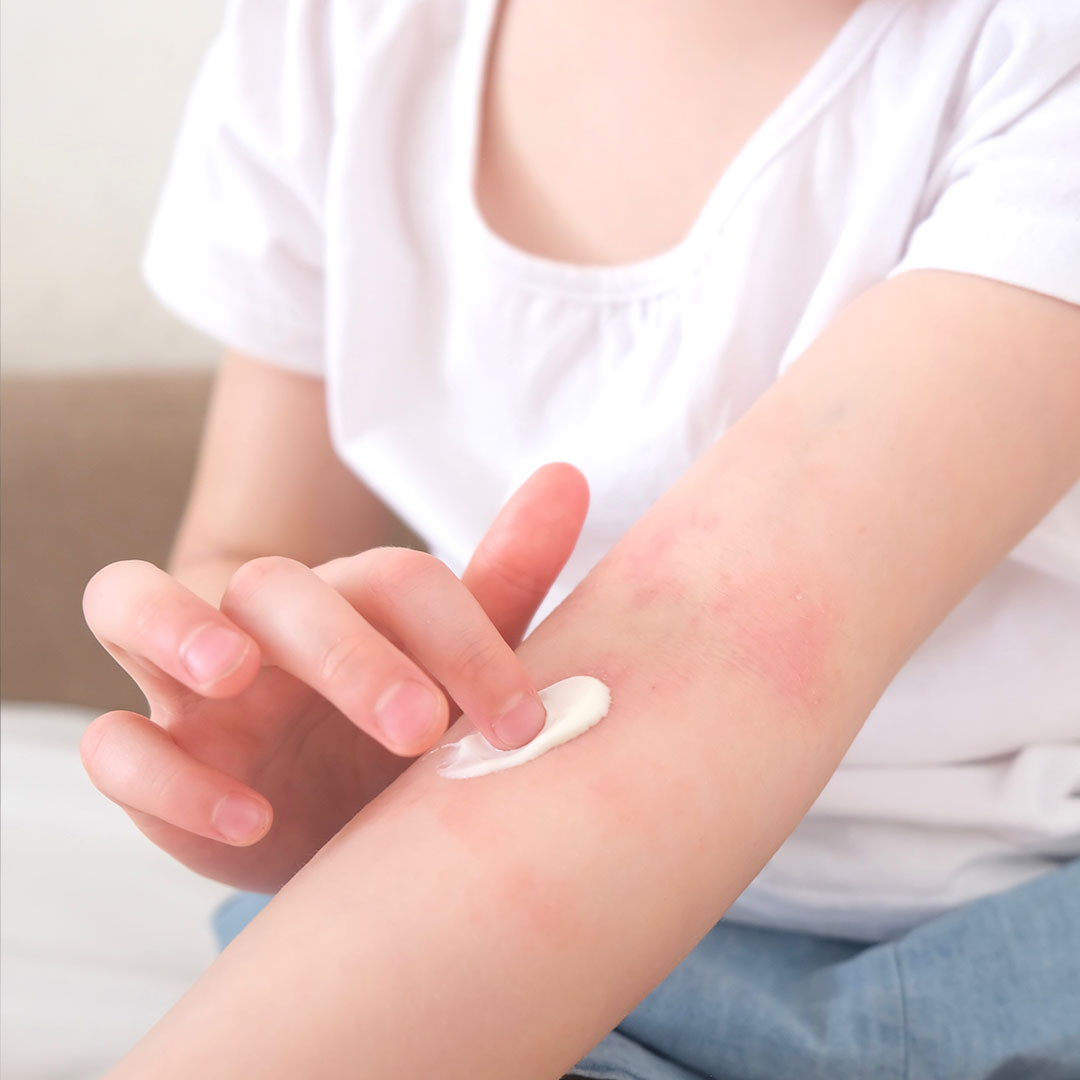Atopic dermatitis (AD), or eczema, is an allergic skin condition that affects children and adults. The condition occurs when the immune system overreacts to an allergen and causes an allergic reaction in the skin.
While there are different types of atopic dermatitis that affect different age groups and have different symptoms, atopic dermatitis in Indian children tends to be less severe than found in other countries. It is seen to show up for 5-15% of school children and 2-10% of adults but primarily has more prominence in infants and children. It usually starts during infancy and often persists into adulthood, although the severity can change over time.
What is atopic dermatitis?
Atopic dermatitis, commonly known as eczema, affects upto 15% of all children at some point during their childhood. The skin condition manifests itself with dry, scaly patches that are often accompanied by intense itching.
While eczema can develop at any age (even later in life), it tends to affect children between two and five years old.
It’s also important to note that while atopic dermatitis is not contagious, it does run in families. So if your child has been diagnosed with eczema, there’s a good chance you or one of your other children will also get it at some point. A genetic predisposition towards allergies also plays a role in determining who develops eczema; individuals who have allergies such as asthma or hay fever are more likely to develop atopic dermatitis than those without these conditions.
Symptoms of atopic dermatitis
Atopic dermatitis symptoms in infants and children are similar to those of eczema, and may include dry skin, red patches or scaly skin, blisters and the appearance of the skin being inflamed.
While atopic dermatitis is often associated with allergies (like hay fever), the condition itself doesn’t cause any allergies. For that reason, an allergist should be consulted in addition to a pediatrician if you suspect your child has atopic dermatitis.

Causes of atopic dermatitis
The root cause of AD isn’t fully understood, but researchers know for sure a few factors that might cause it.
- Atopic dermatitis seems to run in families, so genetics may play a role.
- Various environmental factors can also have an effect: some kids who grow up around pets, have dust or pollen allergies, or who spend time with lots of plants, may exhibit symptoms of AD. Another thing to note is sweat, climate, temperature, detergents, and soaps, fabrics, and cigarette smoke are other environmental factors that can trigger Atopic dermatitis.
- In addition, certain chemicals (such as nickel) and food allergies may trigger atopic dermatitis in some children.
In the next section, we’ll discuss how some preventive measures can help to reduce the suffering and discomfort faced by your child.
Precautionary steps to reduce the effects of Atopic dermatitis
Children affected by atopic dermatitis should take extra care of their skin to prevent further damage or infections.
The measures are simple:
- Avoid harsh soaps or any chemical-based products as they are not good for your child’s skin. Use mild soaps to clean his body. Gently pat down with a towel after a bath instead of rubbing dry (as rubbing causes friction).
- You should also try to limit their exposure to sunlight which causes sweating and this can irritate your child’s skin making things worse than before.
- Consider switching woolen garments to cotton material to keep the skin cool and free from further aggravation.
- It is best if you use lotions that contain ceramides, urea, lactic acid, and glycerin. These will help repair damaged cells on your skin, moisturize them and lock in moisture better than before. Using corticosteroids may also help reduce inflammation but it is important that you do not use them for more than two weeks at a time.
Consult with a doctor first and ensure you are administering the right treatment based on the severity and sensitivity of your child’s health condition.
Why must you act now?
Atopic dermatitis often begins early in life and may affect your child’s social life as well as schooling. Itching caused by atopic dermatitis can disrupt your sleep, leading to mood swings and poor concentration. It is difficult to watch your child suffer and go through these daily hassles, but it is important to educate yourself about the condition and how to limit its effects on your child.
It is possible to care for this condition so that it will not hamper your child’s normal activities. Reach out to us today and we will offer the guidance and care needed to make improvements in your child’s health.
Sources:
https://www.indianpediatrics.net/oct2002/oct-922-930.htm

